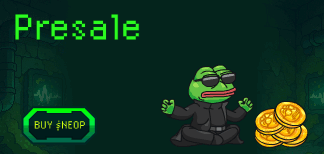What are the differences between a Decentralized Autonomous Organization (DAO) and a Decentralized Flexible Organization (DFO)?
First off, DFOs are a kind of evolution of DAOs, in other words a new solution that solves some problems that could not be solved with DAOs.
However, flexible decentralized organisations are not an alternative to autonomous ones, but rather have different objectives.
DAOs basically serve to manage the governance of a decentralized protocol, while the purpose of DFOs is even more ambitious: to manage an entire blockchain-based research and development project.
DFOs versus DAOs
For instance, DFOs can be used to create “startups without founders”, where a community of anonymous people can initiate a project and implement it piece by piece without having to rely on third parties or a team of developers.
This allows tokens to be distributed and votes to be cast even before the project is completed, and its smart contract uploaded permanently to the blockchain.
In fact, thanks to DFOs, anyone can start a project and implement an external smart contract that allows the airdrop of Voting Tokens with which members can cast their votes.
The objective is to manage the development and implementation phase of the dApps, not to govern them once launched.
Consequently, DFOs do not compete with DAOs, but are an evolution of DAOs used to solve other problems and achieve different objectives.
They are called ”flexible” because developers can design different types of DFOs, with different types of functions and economic incentives, without any need for trusted persons or entities, and anonymously.
There is even a DFO that allows DFOs to be created. It is called DFOhub, and it is an on-chain dApp on Ethereum that facilitates the creation and governance of DFOs.
So while a DAO is used to manage the governance of a dApp once it is launched, a DFO is used to design and implement it.
The common features are:
- Anonymity,
- Censorship-resistance,
- Trustless nature,
- Voting,
- Voting tokens.
Once a dApp is created with a DFO, the dApp can be managed with a DAO.
In other words, not only are DAOs and DFOs not alternatives, they can even be complementary.


